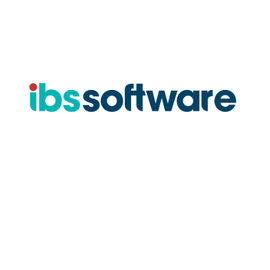
IBS Software
Somit Goyal started as CEO of IBS Software a little less than a year ago after spending time at Microsoft, Oracle and SAP, among other big-name companies.
IBS Software provides solutions for airlines, hotels, cruise lines and other travel companies, focusing on areas like retailing, passenger services, distribution and loyalty.
Somit Goyal was named IBS Software’s new CEO in June, succeeding Anand Krishnan, who had been in the role since 2018.
Goyal is relatively new to the travel industry but entered the position with decades of experience in the software industry. He is now approaching his second year as the head of the company, which offers solutions for airlines, hotels, tour companies and cruise lines. In an interview with PhocusWire, Goyal opened up about his mindset, goals and the future of IBS Software.
Editor’s note: The following responses have been edited and condensed for clarity and length.
Location
Trivandrum, India
Tell us about what motivates you in your role as CEO.
For me, that goes back to the mission of the company. Our mission is to transform travel through technology, and I’ve spent a lot of time the last few months, as I’ve come into the role, thinking about what that really means for us.
If you think about travel, it’s all about creating experiences for people. If I really take a step back, I would think about what I’m really doing to our products and services that we provide to our customers—it is about enabling those life experiences for people. [Travel] tends to be a very disconnected model. … So this is an opportunity to take pieces of this and then optimize the customer experience. That is the thing that gets me excited.
So now that you’ve been in the role for a little shy of a year—what’s the biggest lesson you’ve learned while leading IBS Software?
I don’t come from this industry—I’m a tech product person. I spent a long time at Microsoft, so when I came to IBS, there was a lot for me to learn. I would say [if] there’s one thing that I’ve learned about this industry, it’s how ripe it is for innovation and for transformation.
Tell us a little bit about what experiences or lessons from your past roles at Microsoft, SAP, Oracle and AOL that you brought to IBS when you came in.
I started my career as a software engineer for a number of years for companies like SAP and Oracle, then moving to more product management functions and then more commercial oriented functions after that. I was at Microsoft for over 11 years. The long tenure at Microsoft was really instrumental in shaping my leadership approach, especially as I think about driving transformation, building high performing teams and leveraging technology for business impact.
And a lot has been written about Microsoft’s own transformation in the last 10 years. I am fortunate to have [had] a front row seat to that transformation. And as I look at IBS Software, I see a very similar opportunity. I feel I can take what I’ve learned at Microsoft, [and] I can apply the same things here.
What are you hoping to see during year two as CEO?
I think for me, it’s a combination of doing two or three things really well. Number one is having a very strong vision for the industry across our product line.
And you need products that deliver on that vision, right? As I think about next year, we have very clear plans by product in terms of how we deliver all those product providers. And number three is how do you actually engage with your customers in a more strategic fashion, so that your customers see you not just as a tools and technology provider, but as a strategic partner? If you do those things well, then you are a customer-centric organization.
Subscribe to our newsletter below
How are AI and agentic AI changing the way that you see IBS Software’s future?
We’ve been doing artificial intelligence for a while. So there’s obviously the old sort of predictive analytics days with AI models. Then there was a next wave that started when ChatGPT was initially announced, which then sort of spawned this whole wave of generative AI applications.
[One] of the initial use cases we are using, for example, [is] using AI to make our own operations more efficient. For example, our own engineering, all of IBS is right now on AI, all of our engineers use AI to be more efficient. It’s not just about productivity, but it’s also about predictability and having a higher quality product.
But we’re also looking at scenarios like customer service. One of the top scenarios for [using] AI, specifically, was customer service, creating chat bots. We’ve done a lot of that with customers over the last couple of years … very, very successfully. The thing that I’m not excited about is the next wave of, sort of, the revolution of the generative models, which is a reasoning model.
What are the biggest challenges you’re facing right now at IBS Software?
If you are operating as the CEO in any company, there are three things you need to worry about. Number one is capability, that you have the right capability within your company. Number two is clarity, which is [being] clear about things that you’re doing and, equally importantly, things that you’re not gonna do. And number three, probably the most important … is culture.
What are you seeing in terms of the biggest industry challenges right now?
Because of the administration change in the U.S. … there’s a lot of uncertainty in the market around—certainly this has happened the last three months—where consumer sentiment in the U.S. is kind of challenged right now, given all the talk around tariffs and so on and so forth.
I would say [if] there’s one thing that I’ve learned about this industry, it’s how ripe it is for innovation and for transformation.
Somit Goyal, IBS Software
As a technology provider, we have to be cognizant of that, and we have to wait and watch in terms of their ability and appetite to invest in transformation initiatives and projects.
What’s the biggest mistake that airlines and hotels are making when it comes to technology?
It’s not a mistake … you need to have someone within the company who has the vision and the leadership to say, “Okay, guys, this is going to take us a little bit of time, but at the end of the day, when we come out of this transformation, whether it’s retail or operations, you’re going to be a much better company. And it might be painful but we have to take that risk, and we have to go ahead with it.”
It sounds like resistance to modernization can pose challenges to airlines and hotels if they choose not to follow that.
Yes, absolutely, there’s a lot to lose if you don’t do that. At the same time, in my seat, I also understand why they have not done in the past. Because the stakes are high.
How do you see airline software evolving in the next three to five years?
I think moving to modern retailing, to new technologies, new standards, like NDC [New Distribution Capability] … etc., will be a big part of transformation. That seems pretty clear. The second thing I’d say is on the flight operation side. … There’s an incredible amount of pressure to become more resilient when it comes to flight disruptions and disruption events.
There’s an incredible amount of pressure [and] also, I would say, intent, now for the airlines to go beyond and create better experiences and move to modern product stacks, and so on and so forth. And so we are really excited about helping airlines and our customers around the world to move in the right direction there.
And the third thing I would say is … AI is getting a lot of visibility, but at the end of the day, it’s a lot about data as well. There’s a lot of foundational work that is required to be done to bring that data together. We are fairly excited about doing that piece of work as well for the airlines or cruise lines or hotels, because that is the real plumbing that needs to be done.
What do you know now that you would tell your 25-year-old self?
I grew up as an engineer, so when I was in meetings, I always waited to have the perfect point of view before I expressed it. Over the course of years, I learned that … [it’s better to] have a good point of view and then express it. Because your point of view, when you express it, other people make it better, and they react to it, and you learn from it, and you will shape and form it.
Number two, I would say, is having a growth mindset and having a learning mindset. Putting yourself out there is really, really important, and putting yourself in uncomfortable spots and positions, in situations, is really important, because all of us get to a point where we become too comfortable—and that’s when you stop growing.
The last thing I’d say is, give back.
More from our CEO Spotlight series…
PhocusWire talks to leaders across the digital travel landscape.








